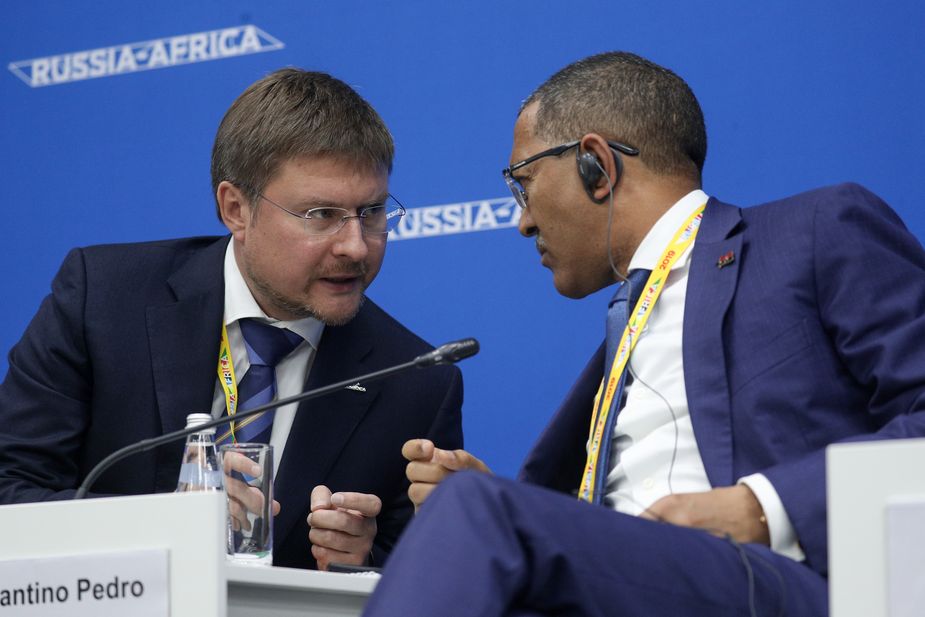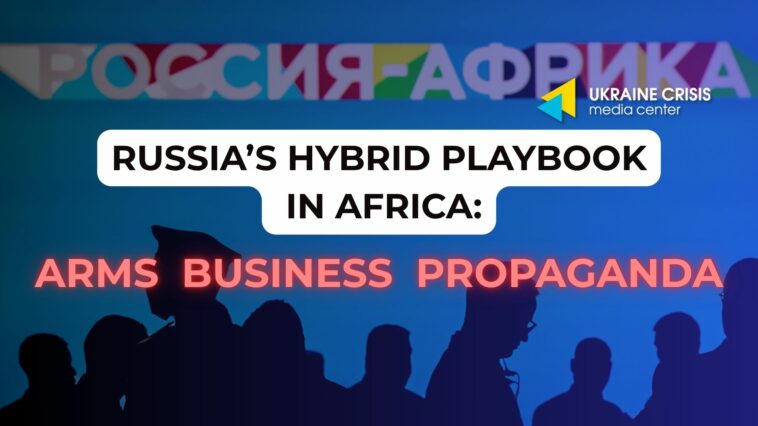Russia continues to actively advance its interests in Africa. The Kremlin is using soft power to strengthen its foothold in the region. What is Russia’s overarching strategic objective on the African continent?
Volodymyr Solovian, Head of the Hybrid Warfare Analysis Group at the Ukrainian Crisis Media Center, spoke about this on the air of the FREEДOM TV channel.
Text version of the interview:
What is Russia’s strategic objective on the African continent?
Moscow is trying to restore (at least partially) the influence that the Soviet Union once held in Africa during the Cold War. In the countries that were once part of the socialist camp, remains a positive sentiment toward Moscow. Russia exploits this nostalgia, using it to pursue business activities and promote soft power.
Russia’s informational presence is implemented through the infrastructure of embassies, particularly via Rossotrudnichestvo and various state-sponsored foundations. Since 2022, when the Kremlin definitively broke ties with the West, the resources that had previously been allocated to exerting influence in Europe were redirected to other regions. Africa has become one of the key focus areas in Moscow’s international propaganda efforts. Among the top priorities on the continent is the Sahel region, where Russians maintain a military presence through the African Corps deployed there, which in 2023 replaced the Wagner PMC.
Does modern Russia have the potential to implement large-scale projects in Africa?
Russia’s capabilities are not comparable to those of the Soviet Union. In 2024, trade between Russia and African countries amounted to around 24 billion US dollars – 12 times less than the trade volume between Africa and China. Russia cannot compete with the United States, the EU, or China in terms of investment or lending. Instead, Moscow looks for narrow niches to pursue its business interests.
For example, during the recent St. Petersburg International Economic Forum, the Russian gold mining company Nord Gold Group announced its intention to expand operations in Burkina Faso and Guinea. The company “Alrosa,” although under sanctions, remains a global leader in the diamond market and operates in Angola, Botswana, and Zimbabwe.
Russia’s economic strategy in Africa is often based on the use of corrupt networks, lingering Cold War-era sentiment, and the economic vulnerability of local governments. Unable to compete on equal footing with the West or China, Russia acts opportunistically. At the same time, African countries try to extract maximum benefit by balancing between global players. The competition for resources allows them to increase the value of contracts.
Thus, the hybrid formula – combining targeted military presence with elements of soft power and business interests – forms the foundation of Russia’s presence in Africa.

What is the difference between the Wagner Group and the African Corps?
Today, the Wagner PMC no longer exists as a unified structure – neither in Russia nor in the African countries. After Prigozhin’s mutiny, the Wagner Group was effectively rebranded into what is now known as the African Corps, which since then has been directly subordinate to Russia’s Ministry of Defense and functions as part of its structure.
Hybrid Warfare Analysis Group observes that Russian Telegram channels are advertising contract opportunities to join the African Corps. The financial conditions are identical to those offered to Russians who sign contracts to fight in the war against Ukraine. Russian mercenaries deployed in Africa are promised a one-time payment of 2.5 million rubles and a subsequent monthly salary of 200,000 rubles.
This approach demonstrates the systematic nature of Russia’s efforts to maintain a presence in Africa. Moscow primarily targets regions where Western – particularly French – influence has weakened in recent years. After the conclusion of Operation Barkhane, which France conducted in the Sahel until 2022, countries such as Burkina Faso, Mali, and Niger have effectively fallen under Russian influence.
However, from a purely economic perspective, these countries hold little value for Russia. Therefore, Moscow compensates for this by attempting to strengthen its informational influence in other regions of the continent.

Do you mean Russia Today’s informational influence?
Exactly. For example, RT organizes online training programs for African journalists. Last year, one such program trained over a thousand participants from 35 African countries. This year, a new course has already been announced – this time bilingual, in English and French. As part of the program, RT journalists will teach their African colleagues the “journalistic profession.” Under the guise of professional training, of course, pro-Russian narratives are being embedded. Additionally, the program involves the selection of loyal individuals who later influence local information environments – sometimes even working directly for Russian information outposts in Africa.
More details can be found in the HWAG article: “RT Academy: Propaganda Factory Expands”
At the institutional level, it is also worth noting the opening of an RT bureau in Algeria. This branch primarily targets Arabic-speaking countries in Africa. In parallel, we are seeing increased cooperation between Russian actors and several East African countries, particularly Ethiopia. In that country, agreements have recently been signed with local broadcasters on content exchange and journalist training.
In addition, we must not forget about cultural diplomacy, particularly in the field of sports. For instance, a friendly football match was recently held between the national teams of Russia and Nigeria. Since Russia has been excluded from international tournaments, its national football team can now only participate in friendly matches. In this way, African countries create a window of opportunity for promoting the sports component of Russian propaganda.




